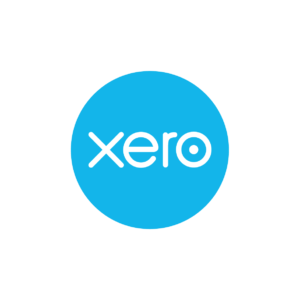Being a freelance accountant has always been my dream since the day I decided to enter the accounting industry. You may now call it a dream comes true.
It was late 2009, I have since decided that being a private banker was not exactly the career path I would like to pursue. I left the banking industry and prepared myself to enter the accounting industry through ACCA. However, it was never my intention to pursue ACCA to be a commercial accountant. I wanted to run my own business and be financial independent even since I was still in NTU days. I therefore made a decision to study hard (and smart) for ACCA and acquire as in-depth knowledge as possible through on-the-job training.
1. Why Did I Decide to be a Freelance Accountant?
While I do acknowledge that being a commercial accountant provides a stable and respectable professional career, however I am looking for more. There are 5 main reasons on why I decided to become a freelance accountant. Here they are:
A. Personal satisfaction
B. Higher level of challenges
C. Financial stability
D. More time for loved ones
E. Financial independence
A. Personal Satisfaction
Don’t get me wrong, especially if you are my ex bosses or colleagues reading this article. I loved my job as a commercial accountant, for each and every single role and company I have ever worked for during the first decade of my professional life.
As a commercial accountant, the work I did was largely to provide accurate, relevant and timely financial information to the shareholders. I was paid monthly for what I did for them. That’s about it, nothing more than an exchange of service with monthly payment from my employer.
While I was passionate to serve my employers, the truth is that I was just another employee on the payroll. This was not quite close to what I would term as being a “fulfilling job.”
As a freelance accountant, I find purpose and meaning for what I am doing. My clients are largely SMEs and Start-Ups. They are just like me, entrepreneurs and businessmen who do whatever they could to be financially independent so that they can provide for their family and their loved ones. It is of great pleasure to serve them.
B. Higher level of challenges
Since I was young and for the longest time I can remember, I have always loved challenges. The harder the tasks I need to accomplish, the more excited I would be.
I spent about a decade working as a commercial accountant. In the last role I held before venturing out myself as a freelance accountant I was dealing with group accounts of about 25 subsidiaries. If you are an accountant reading this article, you will probably know that managing consolidation of group accounts is probably the highest level of difficulty that could possibly be achieved by any financial accountant.
However, I was not satisfied. While the role I played was challenging, I wanted more. I wished to see the company grows faster, to have more efficient processes through technological application and execute better marketing strategies. As you would probably know, there is basically no possibility that I could be putting myself into the marketing and IT departments while I was hired to be in the accounts department.
In short, after spending a decade working as professional commercial accountant, what my role just didn’t excite me anymore.
As a freelance accountant, I have the opportunity to plan and execute my own marketing strategies, acquire as many clients as I wish from multiple industries, develop the most effective and efficient business processes, continue to increase productivity through cutting edge technological systems. These are things I couldn’t have possibly done should I choose to remain as a commercial accountant.
In addition to that, I have always loved managing a team. Being freelance accountant allows me to hire my own staff without the restriction from human resource department.
There are just too many exciting challenges which I couldn’t have possibly experienced being a commercial accountant. So, here I am being a freelance accountant to serve you with all my might. 
C. Financial Stability
Yes, you read it correctly. Being a freelance accountant does provide me with a better financial stability than being a commercial accountant.
You may be wondering how it works. The reason is simple. Let’s say a commercial accountant is earning $5,000 per month. The salary will be coming from a single employer. We have heard a horror story about retrenchment. It just take a single event which may not be under the control of the commercial accountant for him/her to lose 100% of his/her income. However, this does not apply to freelance accountant who usually take on multiple clients. The income of a freelance accountant is diversified into multiple contributors. Yes, it is about not putting all your eggs into one basket.
This is also align to my believe that everyone should be working because he/she is passionate about what he/she is doing and money should never be a motivating factor.
As a freelance accountant, I work hard for my clients. However, it is never driven by the fear of losing my income. It is all about doing what I can to assist them to the best I could. In turn, they provide me a satisfaction of being part of their corporate family. I will never substitute anything for that sense of belonging.
D. More time for loved ones
While I do enjoy a more stable and higher income for the same nature and amount of work as a freelance accountant as compared to when I was still a commercial accountant, financial rewards were not the main motivating factors for conversion.
It was time. It is something that no amount of money can buy.
I can still remember vividly those days when I was still working as a commercial accountant, especially during the month-end closing periods. I used to be in the office as early as 7am in the morning and did not leave office until midnight. Well, of course I did pick up lots of technical knowledge and skills in the process, but I did give up a lot too. I gave up something that is more precious than anything else in the world – the opportunity to spend time with my loved ones.
The life as freelance accountant has been amazing. While there are certain contractual obligations which I will need to fulfill, my clients do not bother on how I should deliver them as long as the statutory requirements of their companies are met. In this way, a strong relationships are formed between my clients and I, which in turn provides me with stronger motivation to give them more than what I am contractually obligated to do so.
E. Financial Independence
To be financially independent has always been my life goal since I was still studying for my degree in Engineering in NTU. For those who may not be quite into personal finance, financial independent means that someone is not reliance on employment income from a single employer.
While I did have side income all along while I was working as a commercial accountant during the first decade of my professional life, I was still reliance on my employers by quite a bit back then. It was quite a stressful situation to put myself under the subordination of my employers as they have too much ‘control’ over my life.
Of course, life is quite different as a freelance accountant. I work (extremely) hard for my clients, but it was not out of fear. It was about providing them accurate information for their business decision making purposes. In turn, this will bring higher profit to the company which enables it to share more with the employees. For my start-up clients, that means higher disposable income to provide the best of life for their family and children.
Yes, I have devoted my life to assist businesses of all sizes, be it start-ups, SMEs or MNCs.
2. What Does It Take to be a Freelance Accountant?
It is not a single factor that has enabled me to convert from a commercial accountant to be a freelance accountant. There are actually multiple factors that are important in determining the success of a freelance accountant. The good thing is that each and every single factor is controllable. That simply means everyone can be a freelance accountant!
I have received multiple e-mails from commercial accountants and how they could possibly enjoy the life of a freelance accountants. Please accept my apology that I was unable to reply each and every single e-mails sharing how I went about doing it. Therefore, I will address this query in this part of the article so that it can benefit all commercial accountants who aspire to be a freelance accountant.
While there are other less significant factors involved in determining the success of conversion from commercial accountant to freelance accountant, these are the 3 major factors which serve as critical success factors:
A. Passion
B. Technical competency
C. Prudence lifestyle
A. Passion
Oh , yes! I strongly believe that passion has to be the main driving factor in making most, if not all major career or business decisions. In fact, I have written an article on the importance of passion as one of the two key elements of success. Passion has also been the primary guiding factor when I made the critical decision to convert from engineering to accountancy and also from being a commercial accountant to be a freelance accountant.
Let’s face it. Unless you have achieved financial freedom, you will likely need to spend your day time working. Well, why not spend it doing what you love doing, right?
Being passionate about what you are doing as a freelance accountant will in turn helps your clients in managing their statutory compliance costs. This is because you will be driven by genuine interest to help your clients out instead of simply focusing on making yourself rich. I have seen situations when not-so-passionate freelance accountants and accounting firms who would easily charge double of what I could possibly quote for the same task. At times, I do wonder why their clients are still happily paying for it.
In short, if you have decided to be a freelance accountant, do become a passionate one who is genuine about helping your clients. Believe me, you will lead a much fulfilling life being a freelance accountant.
B. Technical competency
Should you aspire to be a freelance accountant, this is one area that you probably that you have to seriously work on. I worked extremely hard to gain as much real life experience as possible while I was working as a commercial accountant during the first decade of my professional life. I was fortunate to have the opportunity to work with companies of all sizes across multiple industries. I had also the opportunity to lead a team of commercial accountants in complex statutory reporting. However, I do find that the role as a freelance accountant is even more exciting than the most challenging role I have ever taken up as a commercial accountant.
These are few reasons on why I believe being a freelance accountant demands a higher technical skill set as compared to being a commercial accountant:
1. Requires business knowledge as a whole instead of simply isolated accounting knowledge.
2. Communication and people skills are crucial.
3. Accounting and taxation knowledge in multiple industries are important as to serve clients from wide ranging industries.
4. Wider knowledge in business compliance is needed as clients would expect you to perform other tasks, such as corporate secretarial matters which is strictly under the umbrella of legal study instead of accounting.
In conclusion, there is no substitute to strong technical competency should you decide to progress to a freelance accountant from a commercial accountant. Your clients relies on your sound advice and to ensure that their companies’ statutory obligations are met on a timely manner.
C. Prudence lifestyle
While I have listed prudence as the final factor which will determine the success of transition from being a commercial accountant to a freelance accountant, it does not at all mean prudence is the least important factor. In fact, I attribute much of my success in leaving the corporate world behind to leading a prudence lifestyle since I was young. It has not changed since then.
Prudence is also part of overall money management strategy, which falls under the field of finance (instead of accounting). In this article, I will focus on the area of accounting rather than finance. Nevertheless, should you be interested in understanding the differences between accounting and finance, you may check out the article I have written here. I have also shared an article for a specific are of finance, i.e. investment to help those who have yet to be profitable in their investing journey. Do feel free to check it out here. Personally, I lead a thrifty lifestyle. I believe this is shaped through more than 10 years of experience in the field of accounting. For accountants, we believe in not paying a single cent more than what we need to and there should be an incremental value for each additional cent which we spend.
So, what frugality has got to do with the rate of success of being a freelance accountant? Like it or not, you are not going to have a dozen of clients when you just begin your journey as a freelance accountant. It is therefore very important to keep your personal expenses low so that the professional fees you receive will be sufficient to cover at least your basic expenses. In business, nothing is guaranteed. It is all about stacking up probability so that you can have an edge against your competitors. Being thrifty is one of the ways you can adopt easily so that you can quote competitive rates to your potential clients.
3. How can Start-ups & SMEs and benefit from hiring a freelance accountant?
I graduated from NTU in the year of 2007. During the first decade of my professional life, I had amazing opportunities to work in companies of all sizes as a full-time commercial accountant. While working in MNCs does give me a wider regional and global exposure, the memories of being part of start-ups and SMEs are simply the most beautiful.
As I have shared earlier in this article, I am a strong believer in managing expenses carefully. As much as I have enjoyed working as a full-time commercial accountant in SMEs, I do have acknowledge that it is a costly hiring mistake for SMEs to engage a full-time accountant to meet the statutory compliance requirements of the business. Most SMEs would have done much better hiring a freelance accountant who they can engage from as little as $100 per month rather than settling for a full-time accountant for thousands of dollars!
4. The journey of a lifetime as a freelance accountant
It has been an amazing journey as a freelance accountant. The dream of being financially independent (i.e. to survive without having a job) could have never been possible without the support of my existing clients. Being freelance accountant is the path I have chosen and will stay on course to serve all my clients in meeting their statutory compliance requirements in running a business in Singapore.
If you are running your own business too and have successfully read this article up to this point, hey why don’t drop me a note at hello@yantowong.com? There is probably something I could help out with your business in the area of accounting, corporate tax, GST as well corporate secretarial matters. 
In providing the statutory compliance services, the position I take is clear. Every businesses, large and small, should keep their statutory compliance costs at the lowest possible so that there will be bigger budget to channel to other more important areas, such as marketing and providing better products and services to existing and potential customers.
For those who are inspired by this article and would like to be a freelance accountant, do feel free to get in touch with me too. I am always looking for talented and passionate accountants to serve the growing pool of clients.
Thank you for spending time reading up on the journey of my life as a freelance accountant – I sincerely appreciate it. See you at the next article! 





Pingback: Personal Finance - 3 Simple Steps To Achieve Financial Independence
Pingback: ACCA Top 30 Graduate Study Tips: How To Excel In Accountancy Course?
Pingback: 10 Reasons Why I Choose To Become An Accountant
Pingback: Coworking spaces in Singapore - The Best 3 Choices near MRT!